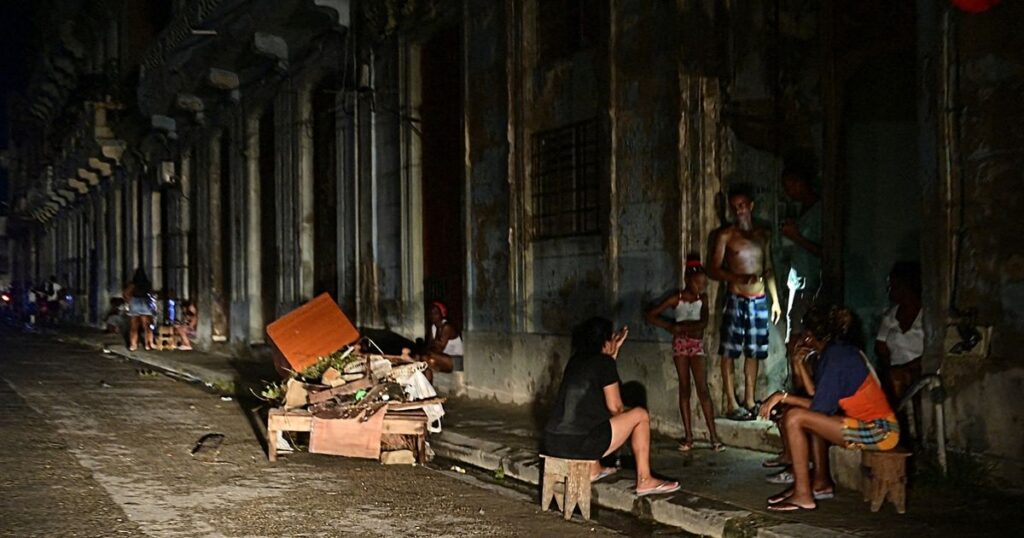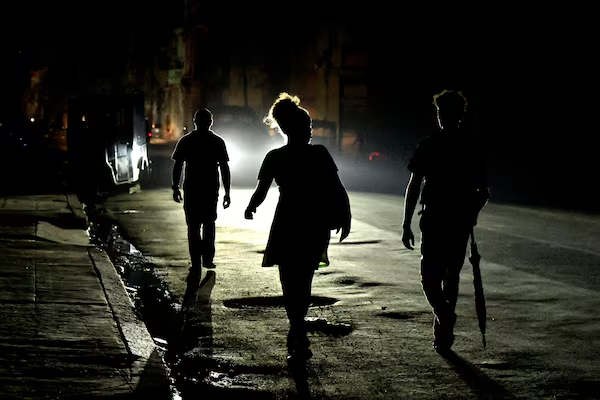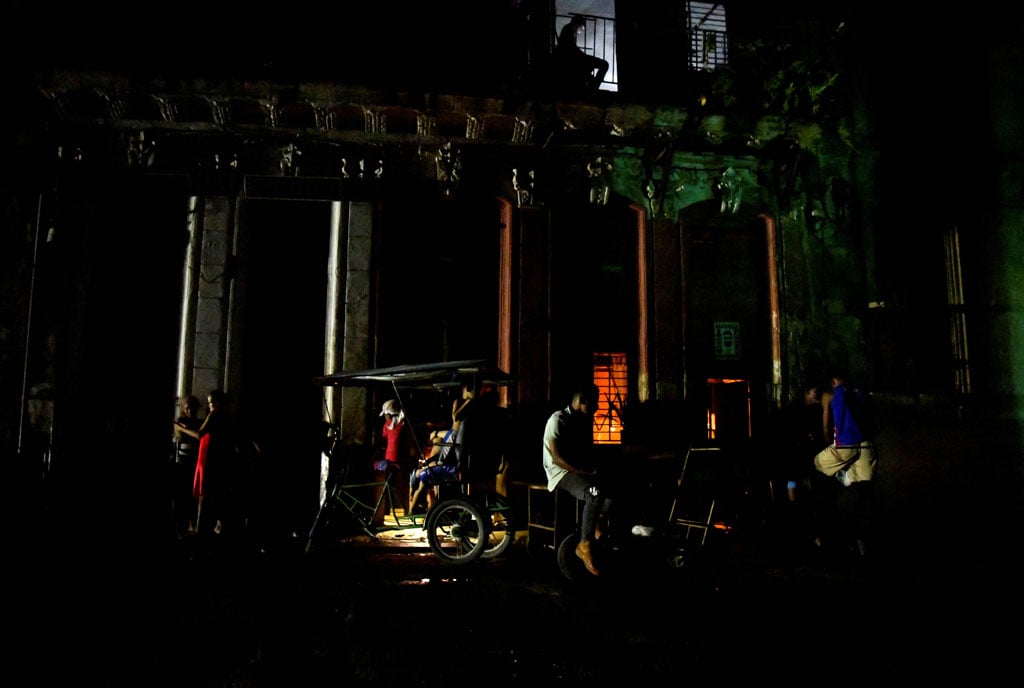Cuba’s electrical grid collapsed for the second time early Saturday morning, plunging the entire country into darkness just hours after authorities had begun restoring power from an earlier blackout. The state-run media outlet CubaDebate reported that the grid operator, UNE, announced a “total disconnection of the national electro-energetic system” at 6:15 AM.

The initial collapse occurred around midday Friday when one of Cuba’s largest power plants failed, leaving over 10 million people without electricity. Prior to this failure, the country had already been grappling with electricity shortages, forcing the government to send non-essential state workers home and cancel school classes to conserve fuel for power generation.
As of Saturday morning, UNE had not provided details on the cause of the second collapse or an estimated time for service restoration. The agency stated only that it was working to reestablish power.

Cuba’s government has attributed the recent weeks of worsening blackouts, often lasting 10 to 20 hours daily across much of the island, to deteriorating infrastructure, fuel shortages, and rising demand. Officials also cited strong winds from Hurricane Milton as complicating fuel deliveries from offshore vessels to power plants.
The country’s energy crisis has been exacerbated by a significant drop in fuel deliveries this year. Key suppliers Venezuela, Russia, and Mexico have reduced their exports to Cuba. Venezuela, in particular, has cut its subsidized fuel deliveries to Cuba by half, forcing the island to seek more expensive oil on the spot market.

Cuban authorities also point to the U.S. trade embargo and sanctions imposed during the Trump administration as factors hindering the acquisition of fuel and spare parts necessary for operating and maintaining oil-fired plants. However, the United States denied any involvement in Cuba’s recent grid collapse.



